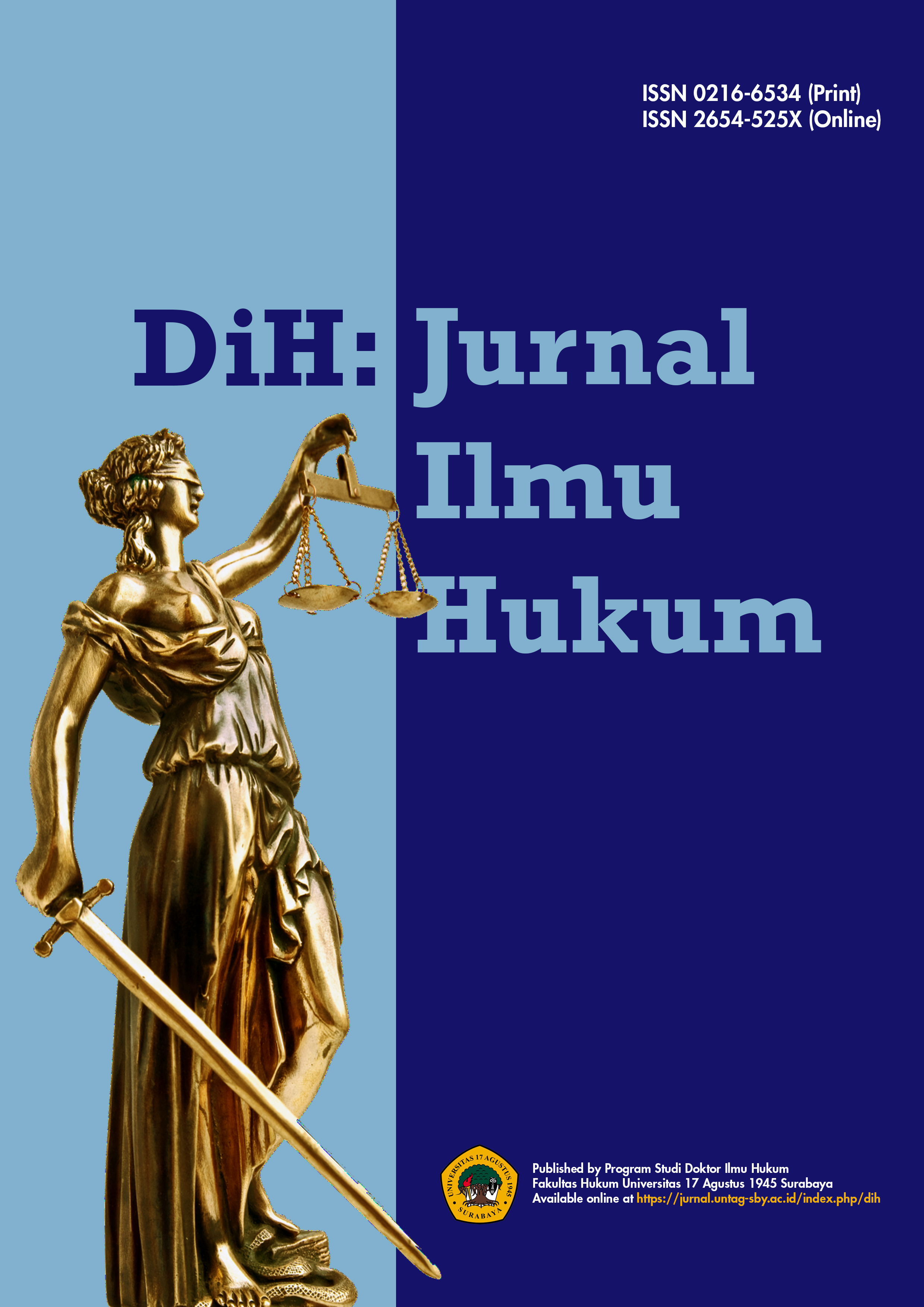Justice-Based Enhancements to the Civil Servant Rumenaration System in the Ministry of Religious Affairs
DOI:
https://doi.org/10.30996/dih.v20i2.10880Keywords:
Ministry Religion, Rumeneration, JusticeAbstract
The Ministry of Religion is currently undertaking a bureaucratic reform program aimed at enhancing organizational structure, management systems, human resources, and salary or remuneration frameworks. The 2008 Ministry of Finance Work Plan profile outlines a Bureaucratic Reform program, which includes the enhancement of the remuneration system. This study seeks to evaluate and analyze the implementation of remuneration improvement policies at the Ministry of Religion, grounded in juridical aspects and principles of justice. The research adopts a normative legal approach, utilizing legislative, conceptual, and case study methodologies. Legal materials are sourced from primary, secondary, and tertiary sources. Data collection is conducted through a comprehensive literature review and analyzed qualitatively. Findings reveal that remuneration is a fundamental aspect of human resource management, concerning the financial compensation employees receive for their organizational duties. To meet the diverse expectations and needs of stakeholders, the remuneration system must uphold the principles of justice. Fairness in the remuneration system within government agencies is mandated by Law Number 43 of 1999. By incorporating performance allowances into the remuneration structure, the system is expected to be more equitable, thereby mitigating welfare disparities both among civil servants and between civil servants and private sector employees.
Downloads
Downloads
Published
Issue
Section
License
Authors who publish with DiH: Jurnal Ilmu Hukum agree to the following terms:
- Authors transfer the copyright and grant the journal right of first publication with the work simultaneously licensed under a CC BY-SA 4.0 that allows others to share the work with an acknowledgement of the work's authorship and initial publication in this journal.
- Authors are able to enter into separate, additional contractual arrangements for the non-exclusive distribution of the journal's published version of the work (e.g., post it to an institutional repository or publish it in a book), with an acknowledgement of its initial publication in this journal.
- Authors are permitted and encouraged to post their work online (e.g., in institutional repositories or on their website) prior to and during the submission process, as it can lead to productive exchanges, as well as earlier and greater citation of published work (See The Effect of Open Access)










